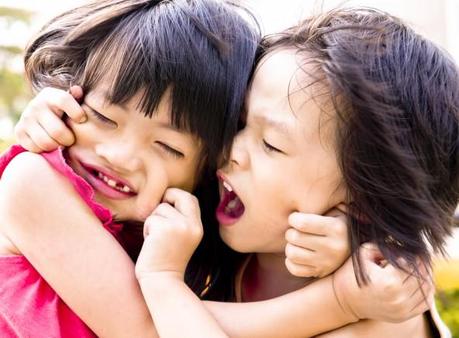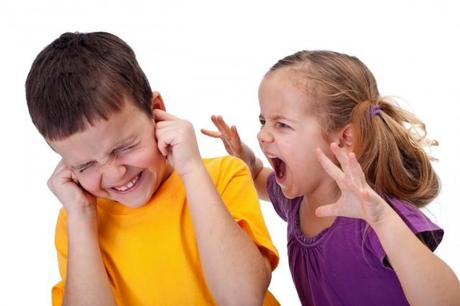
We all want to believe that our children are sweet little angels. We have carried these children for nine months, changed diapers, watched them take their first steps, and bandaged their little wounds. As a parent, you want what is best for your child so you start at an early age, guiding them on how and when to use their manners – thank you, please, and excuse me. When our children are toddlers, it is easy to direct their behavior but as they grow up, it becomes a little more difficult.
When your child turns five or six he/she starts to look for ways to step over the boundaries that have been put into place. As parents, we know that it is important to let our children have some leeway because it builds self-confidence and helps to address their need to mature and develop into healthy children and adults. While your child is searching for his or her identity, there will be instances when he/she will go too far. As a parent, how do you handle this behavior, especially when it is directed toward another child?
I know that my child can be a bit whiny at times. So, I take the good with the bad when she has friends over and the kids start to taddle on each other. As most parents know, taddling is just part of a play date. However, I do not believe in hitting, name calling or other inappropriate behavior. This is unacceptable and inexcusable. Sacrificing a child’s self-esteem for friendship is a BIG NO-NO in my book!
”Mom, Barbara did this! Mommy, Johnny did that!”
Over the last year we have made some good friends and through observing I have realized that there is a certain mother who always makes excuses when her children do wrong. She always tries to make it look like the other child is at fault or he/she must have contributed to the incident. On a recent occasion, I just happen to be looking and saw her child elbowing my child. And the mother said:

“Your child was in her space.”
Are you a parent who makes excuses for your child’s poorly managed behavior? I admit that I would love to say that my child is picture perfect, but it just isn’t so. I don’t feel that I need to make excuses for her behavior when it is wrong. More importantly, I DO feel that it is necessary to make her apologize AND I, as a parent, take it upon myself to apologize to the hostess AND NOT make excuses or blame the victim. If the incident occurs at my house and my child is to blame, then I will still apologize to my guest. However, at NO TIME do I feel that it is appropriate for my guest to blame my child for something she clearly DID NOT do. Nor do I think it’s right for my guest to imply that my child deserved to be treated the way she was when she was NOT in the wrong.
What should you do when your child misbehaves?

The first thing you should do is accept that your child has misbehaved. Don’t be defensive. Take accountability for your child’s actions. The fact is, ALL children misbehave. So, address the situation maturely. You are the parent and need to educate your child on the right way to treat people.
Pull your child aside and have a conversation with him/her about his/her behavior. You can say something like this, “It is unacceptable for you to hit, kick, spit, and call other children names. If this is permitted in your home, you must respect the fact that most parents do not find this behavior acceptable in their home.” Name calling, using words like “stupid” or “idiot”, rewarding children for bullying or harassing behavior and blaming another child for your child’s inappropriate behavior is wrong and considered emotional abuse.
Additionally, it is very important that besides talking to your child, you have him/her apologize for their behavior immediately and without making excuses. If you allow your child to apologize with excuses, it can come across insincere and as a parent, you are sending the wrong message to your child. Even if you are embarrassed by your child’s behavior, you need to make him/her aware that what he/she did was wrong.
If your children tend to act inappropriate when they go to other homes, have a discussion with them prior to leaving your home. Outline the consequence of what will happen if the child’s misbehaves.
Does Your Child Tend To Strike Out in Anger?

There are children who tend to strike out with violence when they are angry. Is your child one of them? As a parent, we never want to believe that our child is angry and violent. It really makes you look at yourself and wonder where you could have gone wrong. How can my sweet 5, 6, 7, 8, or 9 year be so angry that it results in a violence against a sibling or a friend? What haven’t or have I done to cause this behavior? These are questions that you cannot help but ask yourself.
Children handle stress if different ways. Some children withdraw. Some cry. There are those who become physical when they are angry. They hit and verbally abuse. Again, when something like this occurs, you need to talk to your child and educate him/her on the right way to behave. If talking doesn’t help, then other options are available. Questions to ask yourself if you are not correcting this behavior:
-
What if my child injures another child or even worse, kills another child? Can I take that chance?
-
What if another child is mean to my child in attempting to protect him/herself against my child? Can I take that chance?
As a parent, you need to find ways to help your child express their anger that does not involve violence. Hitting another child whether it is a sibling or a friend’s child is violent. And, believe you me, even if you are still friends with the parents of this child, they have already labeled your child as violent and abusive.
Parenting is a REALLY HARD JOB! It will probably be the hardest and most important job that you take on in your lifetime. So, as a parent, you do not need to be perfect. You just need to educate during times like this. Part of growing is allowing our children to interact with other children. We have a duty to make sure that our children are as well behaved in social situations as they can be. We need to give them the tools to deal with uncomfortable situations and be mature enough to not make excuses about inappropriate behavior. If your child verbally abuses, or is physically violent, it is important that you find ways to manage his/her behavior before putting them in situations that might cause harm to other children. Again, if what you are trying at home is not working, consider seeking professional help. This will guard the safety of your child and others in the long run.
